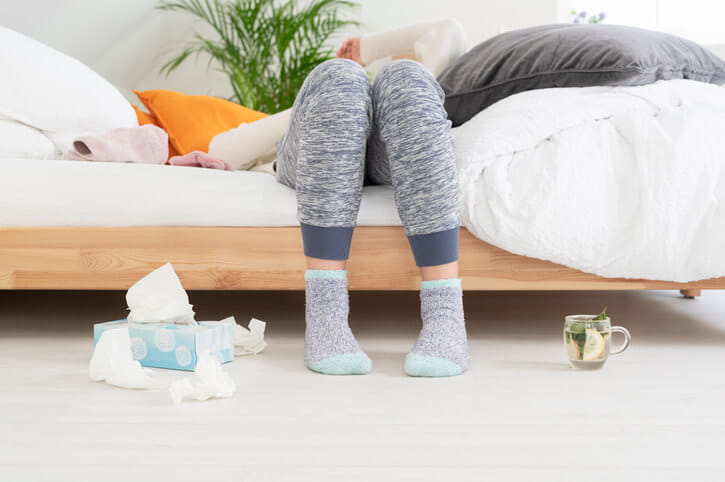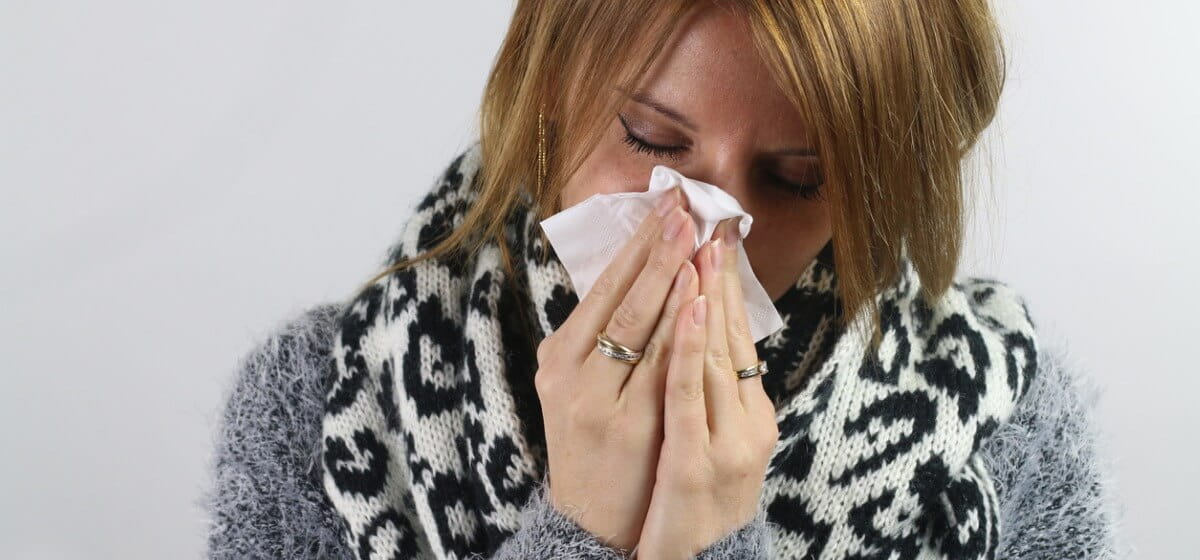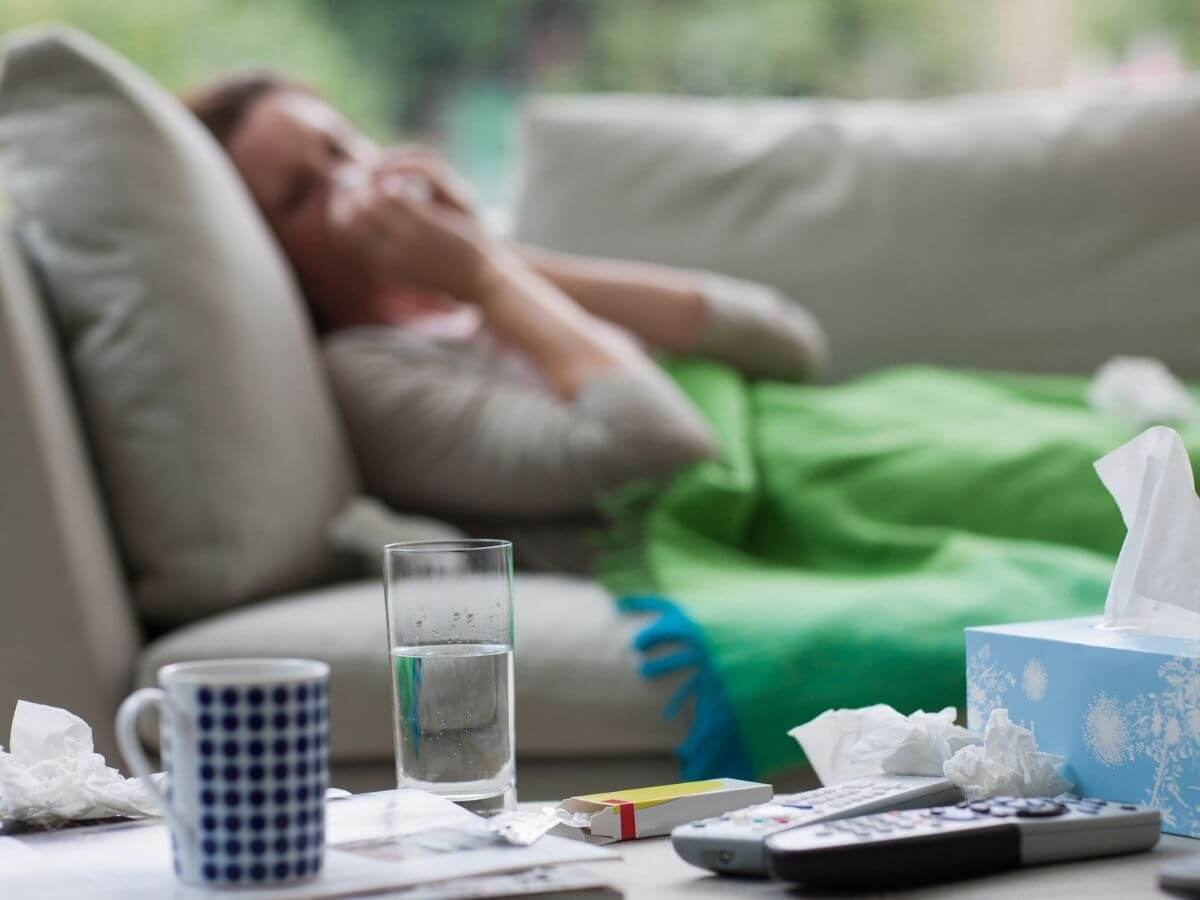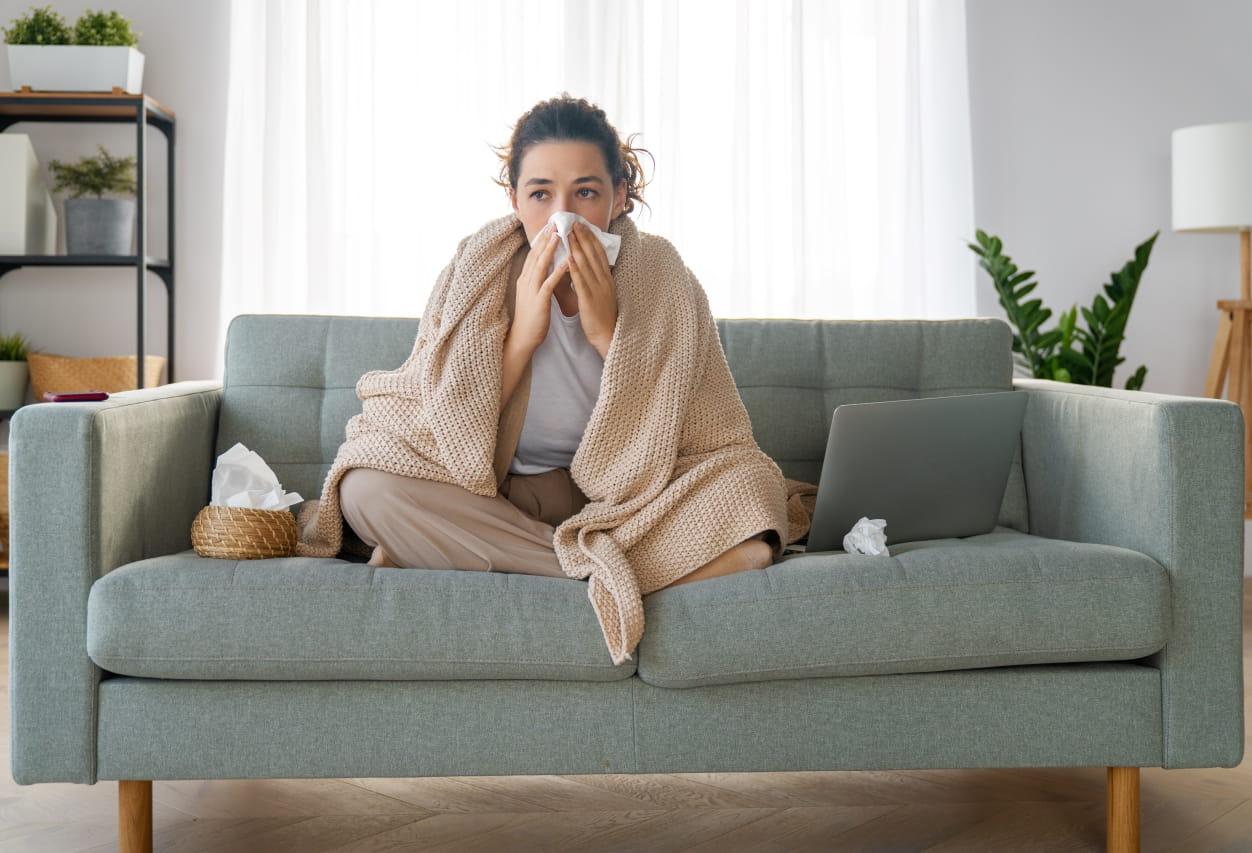What is a Summer Cold?

We tend to think of fall and winter as “cold and flu season.” However, the weather doesn’t have to be chilly for a person to catch the common cold. When someone catches a cold in the summertime, it is not a different type of illness. It is actually caused by the same kinds of viruses, including rhinoviruses and coronaviruses, among others. A summer cold may feel different, but that likely has to do with being stuck inside resting and recovering when you would rather be outside enjoying the warm weather.
How to Distinguish a Summer Cold from Allergies
Summer colds and allergies share a number of symptoms, including the sneezing, runny nose and congestion. But, there are many differences in the symptoms as well. For example:
- The onset of symptoms is different. With allergies, all of the symptoms tend to come at the same time. Summer cold symptoms, on the other hand, are more likely to come in a sequence.
- Summer colds have symptoms that allergies don’t, including cough and fever.
- Summer cold symptoms evolve. Typically they have a mild onset, get more severe, then fade as the illness runs its course. Allergy symptoms tend to arrive at full force, persist for an extended period and then disappear fairly abruptly.
- The nasal discharge is different from the two conditions. It tends to be thinner and more translucent with allergies. Because a cold is an infection, the discharge is often thicker and yellowish or greenish in color.
Never Miss a Beat
Stay up-to-date with the health and wellness news that matters most. Subscribe to our free email newsletter to get the news you need delivered straight to your inbox.
How to Treat a Summer Cold
The treatment for a common cold in the summer is the same as for a winter cold:
- Getting plenty of sleep and rest. While it’s tempting to try and enjoy all the fun activities that come with warm weather, doing too much can stress your immune system, making it harder for your body to beat the virus.
- Staying hydrated with plenty of water. Note that some beverages including coffee, soda and alcohol can actually be dehydrating.
- Eating right. Your body needs the proper nutrients to support its defensive efforts.
- Using a humidifier if appropriate. Adding moisture to the air won’t cure a cold, but it can help alleviate the symptoms.
- Taking cold medication. Like the humidifier, the medication doesn’t kill the virus, but it can help minimize the symptoms.
How to Prevent a Summer Cold
Many of the strategies for treating summer colds can also help prevent them. Getting plenty of sleep, adequate hydration and appropriate nutrition helps your immune system function effectively. It is also important to wash your hands frequently, especially after you have been in public or around others who are sick.
But, if you do catch a summer cold, take heart in the fact that the common cold tends to resolve within 10 days, with the symptoms having peaked by around the seventh day. A little time on the couch with a good book or watching your favorite TV shows and movies, and you’ll be back in action.
Get Treatment at Baptist Health
Baptist Health providers are available whenever you need care, 24 hours a day, 7 days a week. Access care anytime, anywhere with Baptist Health Virtual Care, or find a provider near you.
Next Steps and Useful Resources
How to Tell the Difference Between a Cold and Allergies
Flu vs. Cold: How to Tell the Difference
Do I Have COVID-19 or Just Seasonal Allergies?
How to Sleep Better with Allergies



